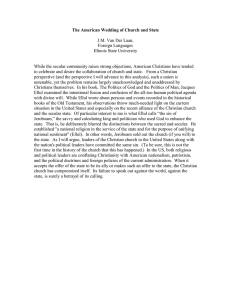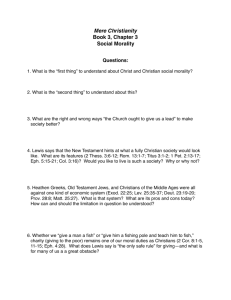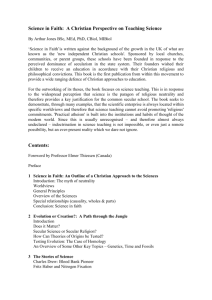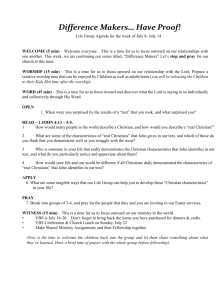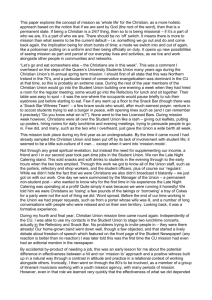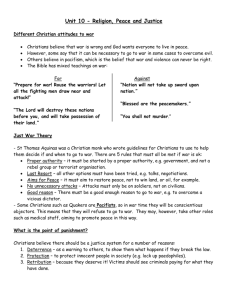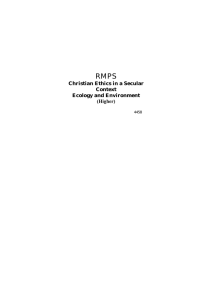Cimino & Smith on “Secular Humanism and Atheism beyond Progressive Secularism”
advertisement
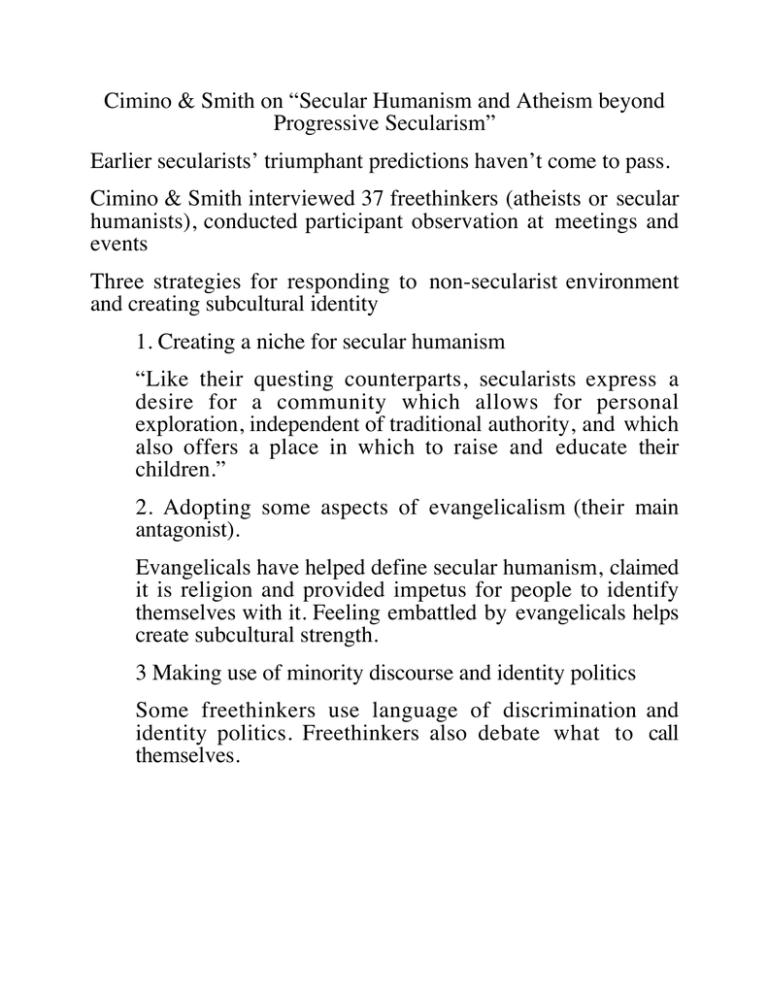
Cimino & Smith on “Secular Humanism and Atheism beyond Progressive Secularism” Earlier secularists’ triumphant predictions haven’t come to pass. Cimino & Smith interviewed 37 freethinkers (atheists or secular humanists), conducted participant observation at meetings and events Three strategies for responding to non-secularist environment and creating subcultural identity 1. Creating a niche for secular humanism “Like their questing counterparts, secularists express a desire for a community which allows for personal exploration, independent of traditional authority, and which also offers a place in which to raise and educate their children.” 2. Adopting some aspects of evangelicalism (their main antagonist). Evangelicals have helped define secular humanism, claimed it is religion and provided impetus for people to identify themselves with it. Feeling embattled by evangelicals helps create subcultural strength. 3 Making use of minority discourse and identity politics Some freethinkers use language of discrimination and identity politics. Freethinkers also debate what to call themselves. Blumenfeld on “Christian Privilege” Peggy McIntosh developed idea of privilege as the other side of discrimination; illustrated with male and white privilege Christian privilege constitutes: “a seemingly invisible, unearned, and largely unacknowledged array of benefits accorded to Christians, with which they often unconsciously walk through life as if effortlessly carrying a knapsack tossed over their shoulders. This system of benefits confers dominance on Christians while subordinating members of other faith communities as well as non-believers” (p. 195). Christian hegemony: “the overarching system of advantages bestowed on Christians. It is the institutionalization of a Christian norm or standard, which establishes and perpetuates the notion that all people are or should be Christian, thereby privileging Christians and Christianity, and excluding the needs, concerns, religious cultural practices, and life experiences of people who are not Christian. At times subtle, Christian hegemony is oppression by neglect, omission, erasure, and distortion” (p. 196). Young’s taxonomy of oppression: Powerlessness: subordinated religious groups have less social power to “engage in the decision-making process that affects the course of their lives or even to name the terms of their existence. ” Exploitation: transfer of results of labor from one group to another. (e.g., African Americans, Indians) Marginalization: restriction from “meaningful involvement in the social life of the community and of the nation.” (e.g., school curricula, calendar and hiring practices) Cultural imperialism: “the universalization of a dominant group’s experiences and culture, and its establishment as the norm.” (e.g., organization of time, music, national slogans, Indian boarding schools) Violence: colonial punishment of nonconformists, modern hate crimes Privilege operates at societal/cultural, institutional (e.g., schools) & individual levels (e.g., proselytizing) “An inclusive model, one that ensures individuals’ and groups’ freedom of as well as freedom from religion is the concept as well as a national goal of “cultural and religious pluralism.”
